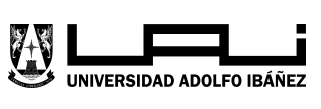Some Ruminations on Perfect Theism
DOI: https://doi.org/10.15691/0718-5448Vol7Iss2a456
Resumen
According to Perfect Being Theism, God is the absolutely perfect (i.e., greatest possible) being. The notion of absolute perfection can be analyzed in different ways. On one interpretation, to be absolutely perfect requires the exemplification of all absolute perfections. On another interpretation, to be perfect requires the exemplification of the best possible combination of perfections. It seems that the latter analysis is better than the former, because it does not fall prey to the problem of incompatible perfections, viz., that there (probably) are perfections that cannot be coexemplified. Here I argue that even if perfect being theists accept the latter analysis, the problem of incompatibility does not go away. I argue that perfections are (probably) incomparable: it is false that some perfection is better than, worse than, or equally good to another perfection. If so, then it is impossible or at least extremely difficult to say that among the combination of perfections there are, there is one that is best among them. I also argue that adopting the former analysis with some restrictions (as Mark Murphy does) leads to the same incompatibility and incomparability problems.
Referencias
Anderson, J. (2015). Resolving the small improvement argument: A defense of the axiom of completeness. Erasmus Journal for Philosophy and Economics, 8(1), Article 1. https://doi.org/10.23941/ejpe.v8i1.182
Chang, R. (2002). The Possibility of Parity. Ethics, 112(4), 659–688. https://doi.org/10.1086/339673
Chang, R. (2014). Making Comparisons Count. Routledge.
Dorr, C., Nebel, J. M., & Zuehl, J. (2023). The Case for Comparability. Noûs, 57(2), 414–453. https://doi.org/10.1111/nous.12407
Espinoza, N. (2008). The small improvement argument. Synthese, 165(1), 127–139. https://doi.org/10.1007/s11229-007-9243-0
Grim, P. (1984). There Is No Set of All Truths. Analysis, 44(4), 206–208. https://doi.org/10.2307/3327392
Grim, P. (1986). On Sets and Worlds: A Reply to Menzel. Analysis, 46(4), 186–191. https://doi.org/10.2307/3328412
Grim, P. (1990). On Omniscience and a “Set of All Truths”: A Reply to Bringsjord. Analysis, 50(4), 271–276. https://doi.org/10.2307/3328267
Gustafsson, J. E. (2013). Indeterminacy and the Small-Improvement Argument. Utilitas, 25(4), 433–445. https://doi.org/10.1017/S0953820813000034
Gustafsson, J. E., & Espinoza, N. (2010). Conflicting Reasons in the Small‐Improvement Argument. The Philosophical Quarterly, 60(241), 754–763. https://doi.org/10.1111/j.1467-9213.2009.648.x
Kretzmann, N. (1966). Omniscience and Immutability. The Journal of Philoso-phy, 63(14), 409–421. https://doi.org/10.2307/2023849
La Croix, R. R. (1977). The Impossibility of Defining “Omnipotence.” Philosophical Studies: An International Journal for Philosophy in the Analytic Tradition, 32(2), 181–190.
Langton, R., & Lewis, D. (1998). Defining ‘Intrinsic.’ Philosophy and Phenomenological Research, 58(2), 333–345.
Leftow, B. (2004). Anselm’s Perfect-Being Theology. In B. Davies & B. Leftow (Eds.), The Cambridge Companion to Anselm (pp. 132–156). Cambridge University Press. https://doi.org/10.1017/CCOL0521807468.007
Leftow, B. (2011). Why perfect being theology? International Journal for Philosophy of Religion, 69(2), 103–118. https://doi.org/10.1007/s11153-010-9267-0
Leftow, B. (2012). God and Necessity. Oxford University Press.
Leon, F. (2024). The Problem of Creation Ex Nihilo: A New Argument Against Classical Theism. In M. Szatkowski (ed.), Ontology of Divinity (pp. 291-304). De Gruyter.
Marshall, D. (2016). The Varieties of Intrinsicality. Philosophy and Phenomenological Research, 92(2), 237–263. https://doi.org/10.1111/phpr.12156
Martin, M., & Monnier, R. (2003). The Impossibility of God. Prometheus Books.
Mawson, T. J. (2002). Omnipotence and necessary moral perfection are compatible: A reply to Morriston. Religious Studies, 38(2), 215–223.
Morris, T. V. (1987). Anselmian Explorations: Essays in Philosophical Theology. University of Notre Dame Press.
Morris, T. V. (2002). Our Idea of God: An Introduction to Philosophical Theology. Regent College Publishing.
Morriston, W. (2001). Omnipotence and Necessary Moral Perfection: Are They Compatible? Religious Studies, 37(2), 143–160. https://doi.org/10.1017/S003441250100556X
Morriston, W. (2003). Are Omnipotence and Necessary Moral Perfection Compatible? Reply to Mawson. Religious Studies, 39(4), 441–449. https://doi.org/10.1017/S003441250300670X
Murphy, M. C. (2017). God’s Own Ethics: Norms of Divine Agency and the Argument from Evil. Oxford University Press. https://doi.org/10.1093/oso/9780198796916.001.0001
Nagasawa, Y. (2008). A New Defence of Anselmian Theism. The Philosophical Quarterly, 58(233), 577–596. https://doi.org/10.1111/j.1467-9213.2008.578.x
Nagasawa, Y. (2017). Maximal God: A New Defence of Perfect Being Theism. Oxford University Press.
Oppy, G. (2011). Perfection, Nearperfection, Maximality, and Anselmian Theism. International Journal for Philosophy of Religion, 69(2), 119–138. https://doi.org/10.1007/s11153-010-9268-z
Pike, N. (1969). Omnipotence and God’s Ability to Sin. American Philosophical Quarterly, 6(3), 208–216.
Plantinga, A., & Grim, P. (1993). Truth, Omniscience, and Cantorian Arguments: An Exchange. Philosophical Studies: An International Journal for Philosophy in the Analytic Tradition, 71(3), 267–306.
Resto Quiñones, J. (2024). Incompatible and incomparable perfections: a new argument against perfect being theism. International Journal for Philosophy of Religion, 96, 35-53.
Speaks, J. (2014). The Method of Perfect Being Theology. Faith and Philosophy: Journal of the Society of Christian Philosophers, 31(3), 256–266. https://doi.org/10.5840/faithphil201481315
Speaks, J. (2016). Perfect Being Theology and Modal Truth. Faith and Philosophy: Journal of the Society of Christian Philosophers, 33(4), 465–473. https://doi.org/10.5840/faithphil201610668
Speaks, J. (2017). Permissible Tinkering with the Concept of God. Topoi, 36(4), 587–597. https://doi.org/10.1007/s11245-016-9387-y
Enlaces refback
- No hay ningún enlace refback.
Copyright (c) 2024 Jashiel Resto Quiñones

Este obra está bajo una licencia de Creative Commons Reconocimiento-CompartirIgual 4.0 Internacional.



